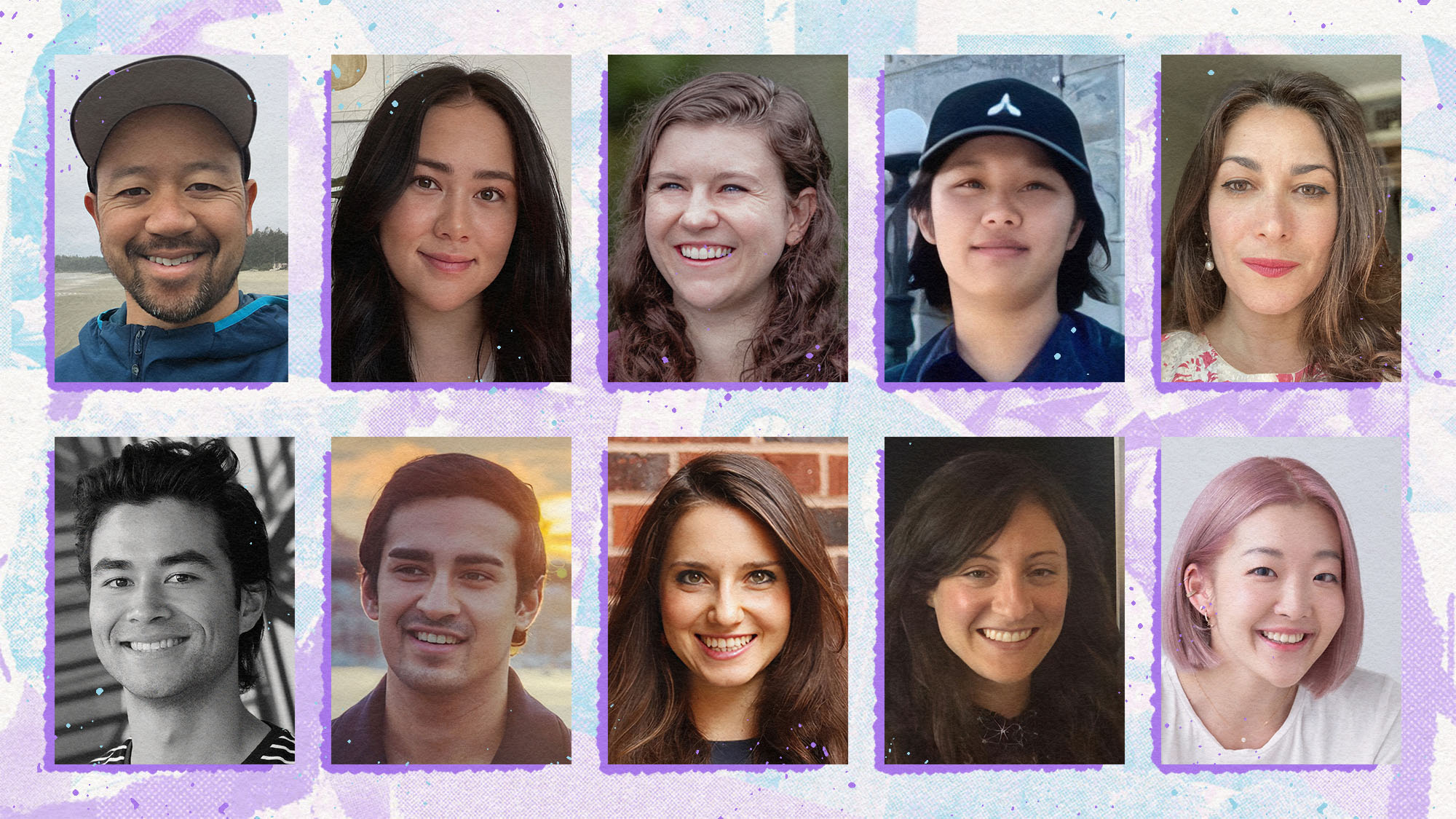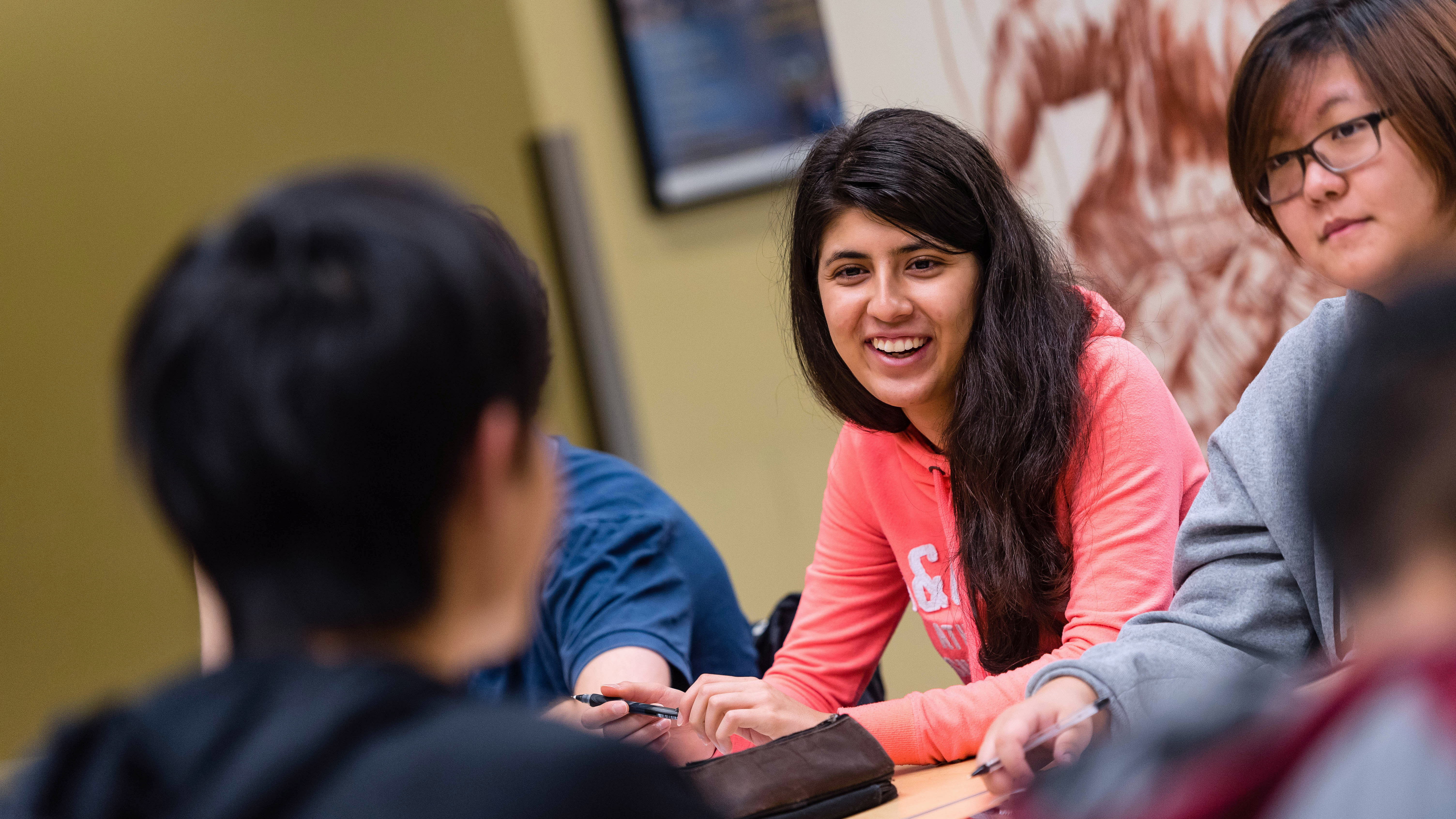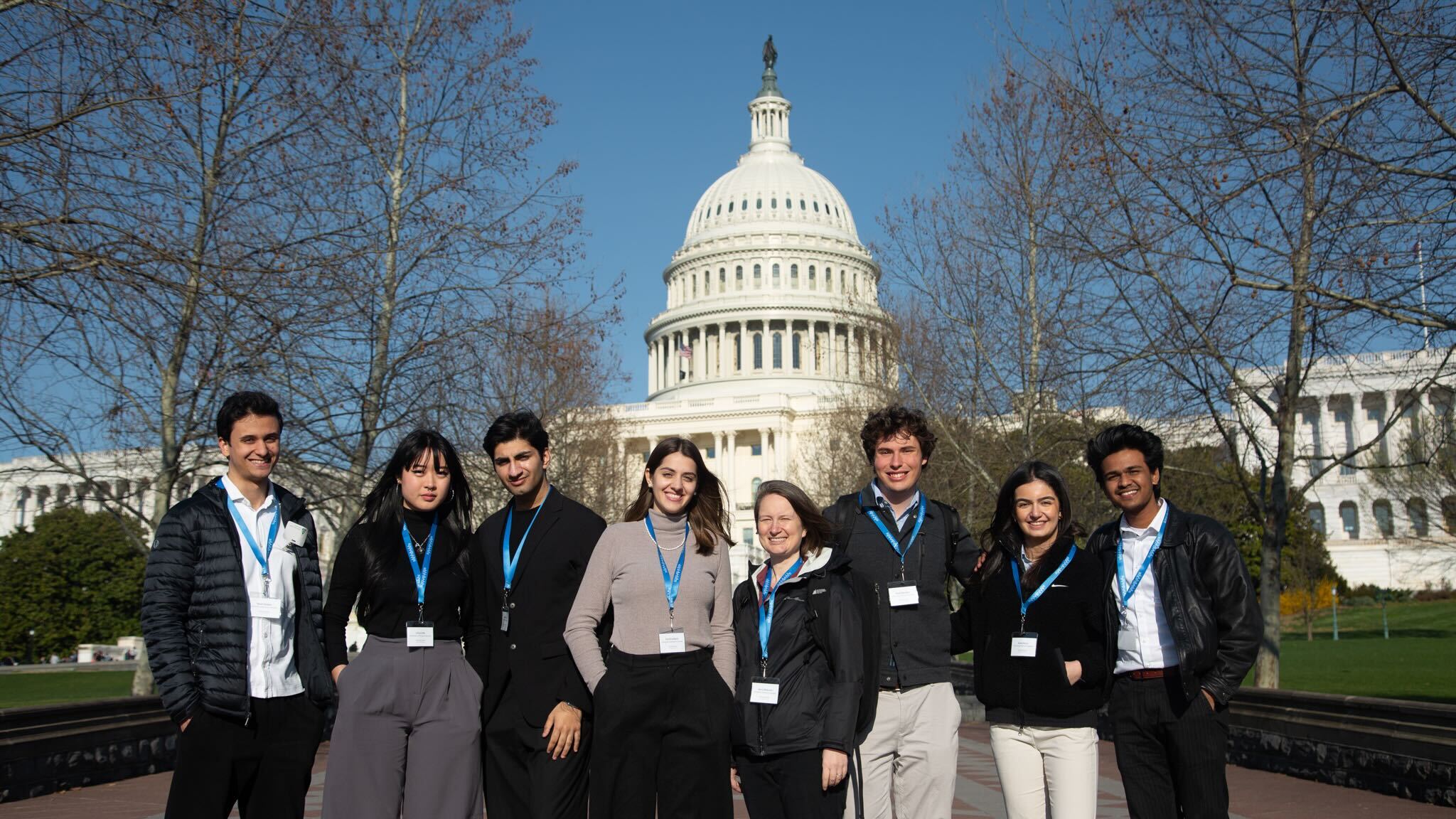

Scholars In Prison Engagementship. Photo of students, ORICE staff, and Dr. Peterson in Washington, D.C. for Scholars At Risk's Student Advocacy Days on March 2024.
After years of successful collaboration, the Office of Regional and International Community Engagement (ORICE) celebrates Dr. Jenny Peterson’s efforts in the Human Rights Collective (HRC), a welcoming community for students and faculty committed to examining, collaborating, and acting to advance human rights. Dr. Peterson, an Associate Professor of Teaching in the Department of Political Science and HRC advisor, plays a crucial role in creating an interactive environment that spans academic courses to engagement opportunities for upper-year undergraduate students.
We asked Dr. Peterson about personal reflections on her long-lasting partnership with ORICE and the spectrum of current activities undertaken by HRC.“The Human Rights Collective is both a physical space based in ORICE but also an intellectual space for students, staff, and faculty who are interested in the study and practice of human rights to come together to discuss ideas, collaborate, and learn from each other. It’s meant to bring people from across the university who take rights-based approaches and provide a space to meet others doing similar work. Human Rights often get assigned specific disciplines such as Political Science or GRSJ, but when you look across campus, whether in Land and Food Systems, Forestry, or Medicine, people are working on rights-based approaches and, thus, Human Rights across campus. We aim to be an interdisciplinary space for those conversations,” Dr. Peterson explains.
What kind of projects and programming does the Human Rights Collective facilitate?
We’ve had student Engagementships where students work on specific projects with community partners and the Scholars In Prison project with Scholars At Risk. HRC has run other Engagementships and seminar series, where, in my opinion, the interdisciplinary work becomes most apparent. We’ve covered topics as wide-ranging as legal perspectives on human rights to what we can learn from data science in terms of communicating about human rights. This year, we’re also running SPPGA 391A: Human Rights in a Globalized World, an interdisciplinary course onhuman rights for the first time. Finally, we have the Resource Catalogue and other scholarly-informed sets of resources which speak to a more scholarly audience and approach to studying human rights.
Within UBC, how are the Human Rights Collective’s efforts unique and what gaps is it addressing?
One of our goals is to try and increase spaces for interdisciplinary engagement. There are already many similar spaces on campus such as the Center for Migration Studies and School of Public Policy and Global Affairs, as well as interdisciplinary programmes for students such as Law and Society. However, we also want to create more informal spaces for people with shared interests to come together across institutions, departments and programs. We often think that these spaces have to be highly formalized and institutionalized. But sometimes, you just need spaces to foster conversations and understanding, which might lead to bigger projects. Because the university is set up in terms of departments and institutes, it can be challenging to have conversations across faculties.
How did Human Rights Collective develop from Scholars At Risk (SAR) advocacy and gain an expanded focus?
The Scholars In Prison (SIP) project was initially integrated into one of my fourth-year political science courses, which focused on theoretical approaches to human rights more generally. The Scholars in Prison work that students did was a smaller part of that course. It was a very positive experience, and the students learned a lot, working both with SAR while also producing research papers on human rights work. Still, they were all Political Science and International Relations students, and I was looking for opportunities to connect with students from other academic backgrounds.
We created a new program allowing a broader range of students to benefit from working with SAR and learning about Academic Freedom, which led to the first of many Engagementships with Scholars at Risk. For example, during COVID-19, we offered an Engagementship that looked at the impacts of the pandemic on Academic Freedom. In another project, we conducted a research report comparing Academic Freedom policies across multiple Canadian universities. Lastly, we hosted the first Canadian Student Advocacy Day, a virtual event due to COVID-19, bringing together participants from across Canada to discuss Academic Freedom issues domestically and internationally.
“Protecting and thinking about Academic Freedom is something that all scholars should do regardless of their discipline. I felt that to spread an understanding and awareness around Academic Freedom, it was essential to expand the program beyond the two existing disciplines under which the course was running, and this only became possible through my collaboration with ORICE.”
What brings you hope and motivates you to keep doing advocacy with students?
In working with students over the years, I have noticed that some of them come to us with extensive experience both in the study and practice of human rights and are well-prepared in terms of the theory, knowledge, and critiques of human rights work. Meanwhile, others may not have the same knowledge. Nonetheless, to work in these spaces, it’s important for students to be able to start somewhere. That is why I consider HRC as a space for students who want to explore rights-based approaches but maybe haven’t had the opportunity to do so in their formal courses. This is what motivates me to keep doing work with the Human Rights Collective – ensuring that students who maybe aren’t necessarily taking a degree in Political Science, Law and Society, and GRSJ but are interested in Human Rights have that opportunity to explore this field in some way, even just through one workshop or Engagementship.
My second motivation is approaching human rights with a scholarly and critical eye and taking seriously critiques of the Human Rights regime and the reality that sometimes we can do harm in our attempts to help. This is a significant part of our work: making sure that students, as they go into the world and try to make a change, recognize the research on critiques of the human rights industry, including the risk of causing harm. By providing students with this more scholarly critical lens on human rights work, we are equipping them with knowledge for approaching their future work through informed and ethical ways.
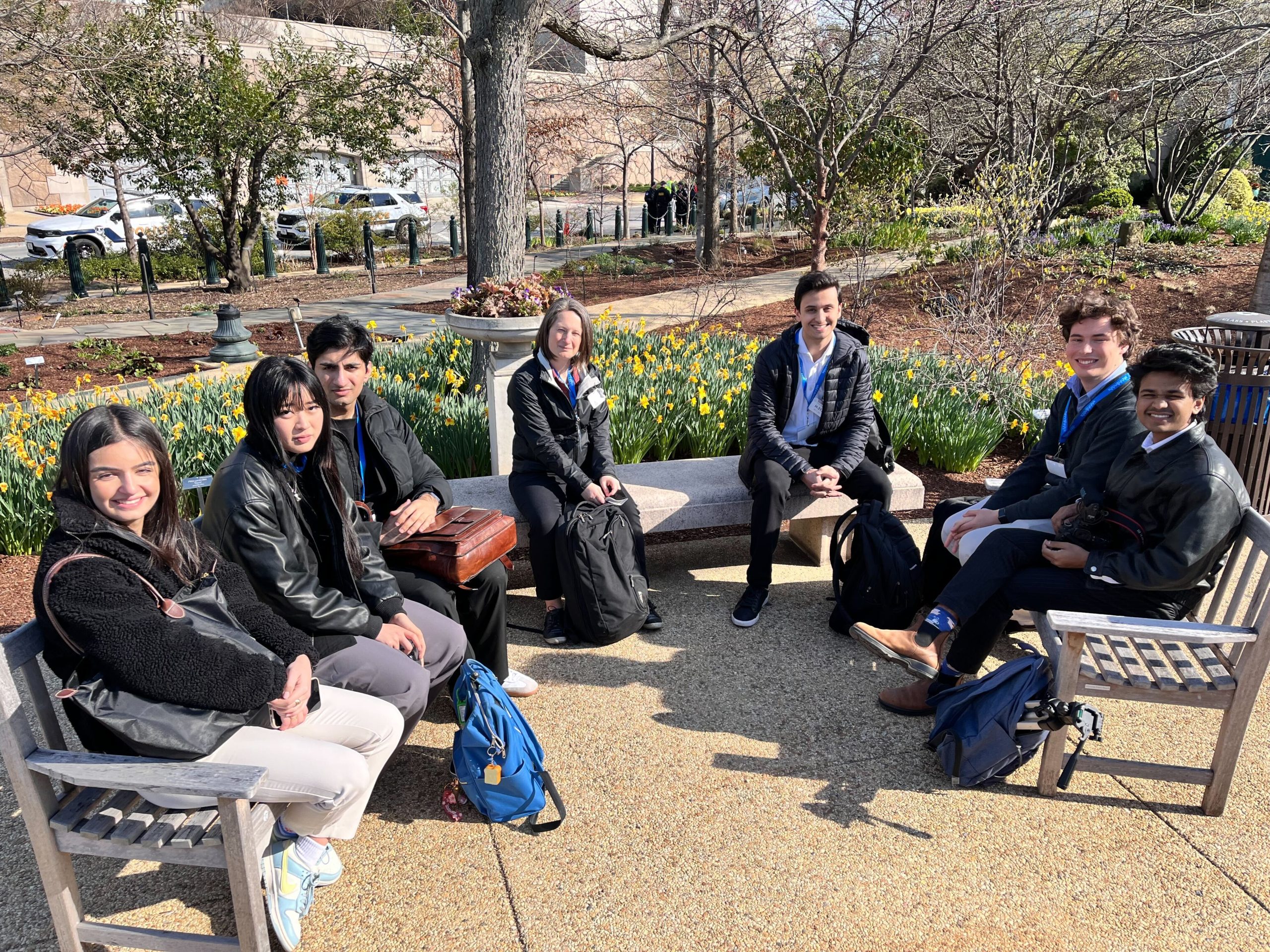
Scholars At Risk's Student Advocacy Days on March 2024
Scholars In Prison Engagementship. Photo of students and Dr. Peterson in Washington, D.C.
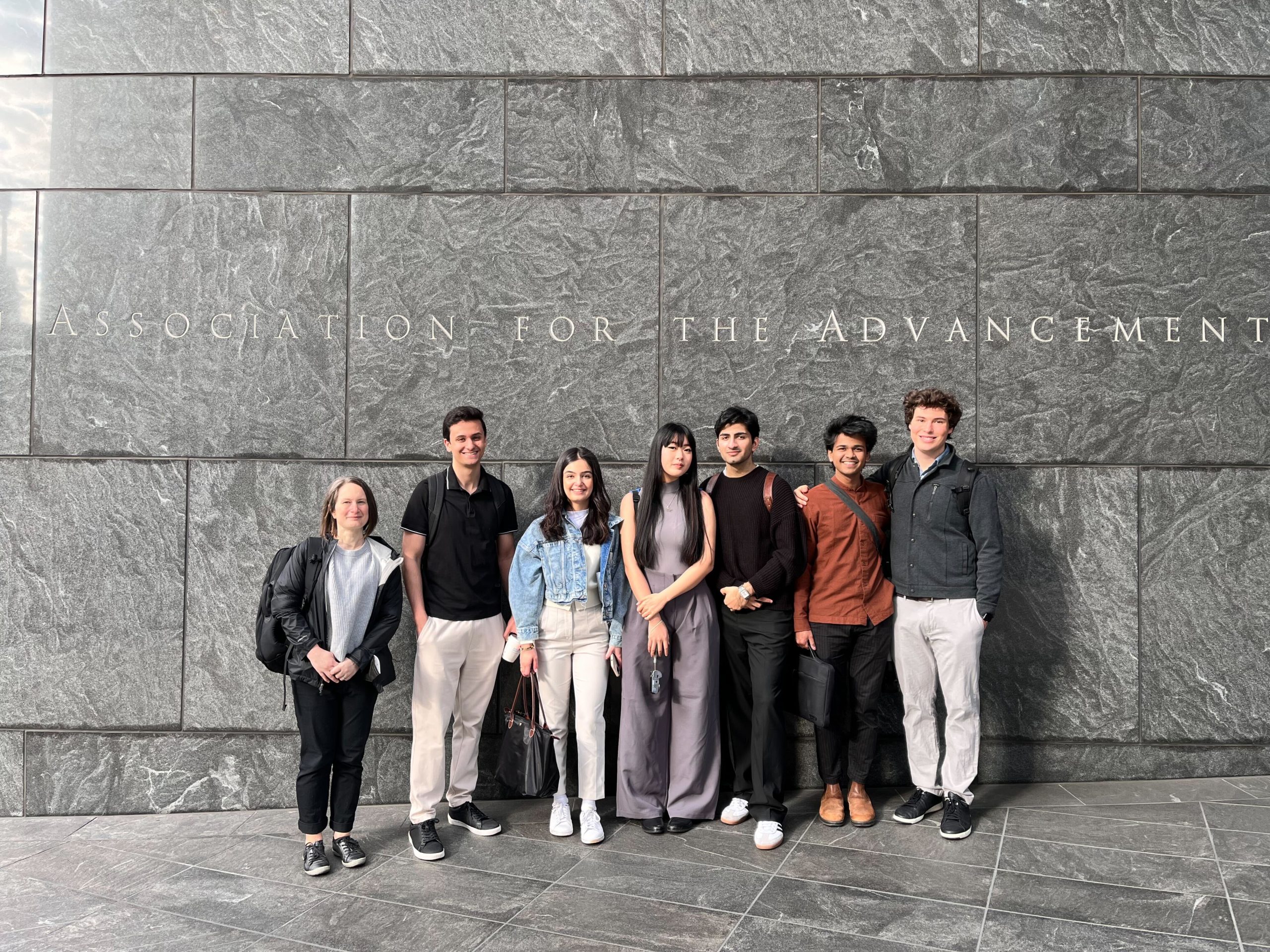
Scholars At Risk's Student Advocacy Days on March 2024
Scholars In Prison Engagementship. Photo of students and Dr. Peterson in Washington, D.C.
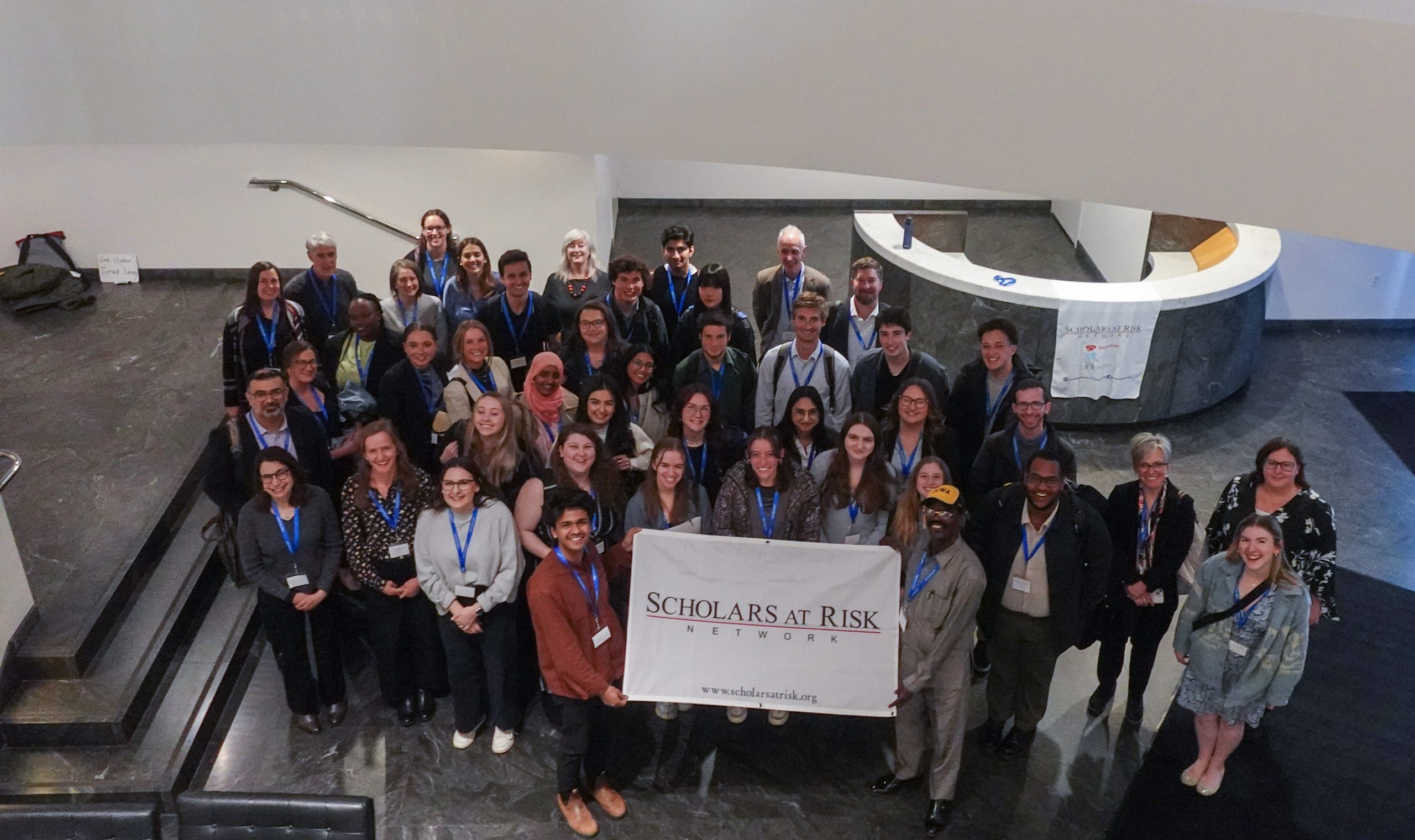
Scholars At Risk's Student Advocacy Days on March 2024
Scholars In Prison Engagementship. Photo of students, ORICE staff, Dr. Peterson and other SAR attendees in Washington, D.C.
Why do you think we need these reflective spaces for engagement?
I feel like the urge to help is important. There are situations where we need to act fast, but the need for reflection is precisely around this core principle of doing no harm. “Do no harm” is a core principle in humanitarian studies, medical fields, and engineering, as is evident in many professional codes of conduct. Spaces for reflection are essential because we need to make sure that we do no harm and that these spaces are as effective as possible. Taking that step back, pausing and evaluating can make our activism more effective because we’re taking the time to think about what works, what doesn’t work, what has historically worked but has historically done harm, and where we need to pivot. These thoughtful pauses are also essential for the scholarship of human rights. Reflecting on our practice also informs our scholarship. It’s a two-way street.
How does being a professor in Political Science and Co-Chair of the International Relations program influence your work with the HRC? Are there any overlaps?
I feel working at the HRC has allowed me to expand my main areas of research. My primary area of focus is peace studies and peacebuilding. Of course, there’s a huge overlap with human rights. Nevertheless, I wasn’t squarely focused on human rights until I started working with SAR. It has allowed me to expand my areas of research and teaching. It made me think of new opportunities for students from an interdisciplinary perspective. I was also able to increase my own scholarly network: I’ve met a lot of faculty members from other departments that I would have never met before. Now I can contact other scholars to consult with them regarding different projects. Having an opportunity to connect and discuss Human Rights issues through various lenses also improved my teaching. I now know I have other faculty members from other departments I can work with, consult with, or bring in as guest speakers, which I wouldn’t have done before.I’ve brought new case studies, ideas, and literatures into my teaching.
If I think about my role as IR Co-Chair, we run a speaker series for the students at the IR Lunch and Learns and working with the HRC has also expanded my network in terms of who I can invite to meet with the International Relations students.
“I hope to see more faculty involved in the space, benefiting and drawing on the resources and the network to enhance their own scholarship and teaching. We currently have a small Human Rights Advisory Committee, but I'd like to see other professors come in and run projects or Engagementships. Additionally, it would be great to see students coming to us with programming ideas, particularly from a broad swath of the campus community.”
You mentioned the importance of amplifying the ideas of students and faculty. Can you elaborate on why you think this is important?
No single discipline has all the answers to solve any given Human Rights situation. Issues such as politics, sociology, culture, language barriers, health, economics, and law are all interconnected. Therefore, an interdisciplinary approach is essential for understanding and resolving complex human rights problems. Spaces like the HRC facilitate collaboration and support among scholars from different disciplines, enabling a holistic approach to studying and addressing human rights issues.
